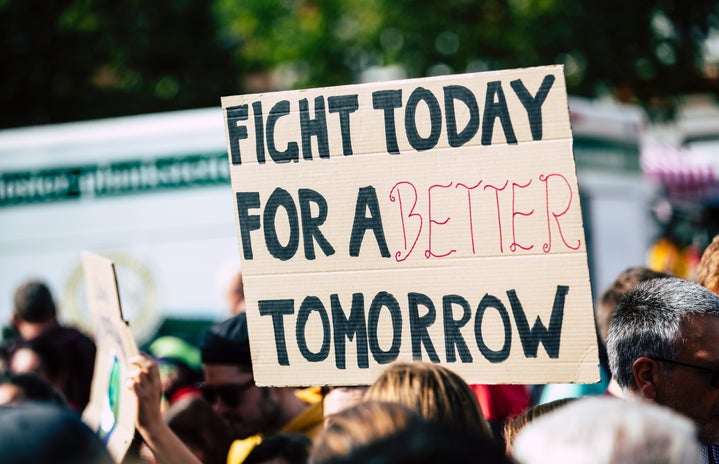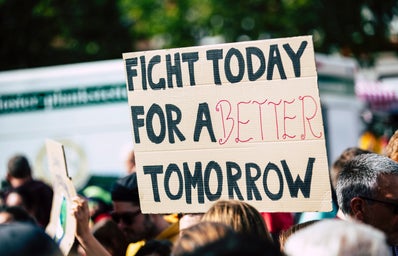There’s been lots of news recently, which can make everything seem a bit hopeless. The re-election of Trump in the US, disagreements with the changes Labour is making in the UK, and general news about issues such as climate change can create the sense that everything is falling apart. Young people, especially, are left feeling powerless in shaping their own futures. It is hard not to feel hopeless, but there are also things students can get involved with to try to create change.
A well-known and widespread example of this is the incredible work of Greta Thunberg, whose school strike for climate became a global sensation. Young people’s efforts to join the school strikes caused a worldwide movement and brought global attention to climate change. She has since been lobbying governments to make real changes to help mitigate and adapt to climate change.
On a more local scale, there are many things you can get involved with on your own campus if you’re passionate about trying to bring about positive change. The University of Exeter has several examples of this. Through collective action, students can make a difference on campus and elsewhere.
The Feminist Society has been a great example of student activism in recent years. Last year, they took students to the Reclaim the Night march in Exeter and are encouraging people to march again or volunteer to help run the march this year. Reclaim the Night is a national movement, with an annual march across cities in the UK raising awareness for women’s safety at night and attempting to take back women’s ability to walk alone. The Feminist Society also ran a campaign on student safety at night on campus, running a survey asking students where they felt most and least safe and what they thought could be done to improve this. The results of this have since been passed on to the Exeter Students’ Guild.
Be the Change Society has also run several campaigns. Working towards a more sustainable campus, Be the Change is a student-led society focusing on how students can do their part to be more sustainable. They have run several campaigns, including a campaign on microplastics last year. This raised awareness of micro-plastics and resulted in the ban of some single-use plastics on campus. This year, Be the Change is running a new campaign focusing on sustainable stash for societies. They also run Sustainable Sundays every other week, in which students can go to discuss issues of climate change and ways of being more sustainable.
These are just two examples of student activism at the University of Exeter, but there are many more societies that aim to create change on campus and in wider society. There are several political societies, including Labour, Conservative, Green, and Liberal Democrat. There are also other representational societies, such as the LGBTQ+ society, which aim to create a safe space for students and represent minority students.
Many other universities have seen rises in student activism. The University of Warwick, for example, made national news when students created a camp on campus protesting how unsafe women were at the university. There have been several camps protesting university investments in Israeli companies and in support of Palestine, sometimes forcing universities to make compromises about their funding. Other examples include securing guest speakers and hosting debates organised by students to raise awareness of certain issues.
Ultimately, students have the opportunity to get involved with a whole range of activities, which can help to create change. While it is so easy to feel hopeless and like your future is completely out of your control, it is also possible to create positive change through collective action. This can only happen if students grasp the opportunity to get involved.


